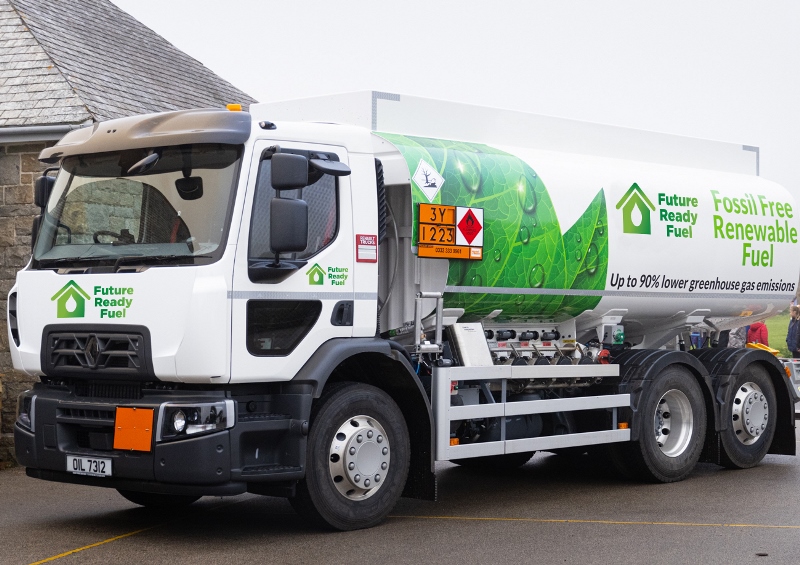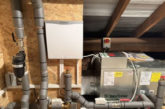
Malcolm Farrow, Head of Public Affairs at OFTEC, argues that transitioning to low carbon heating is about more than just technology.
When policy decisions are being made about how to reduce carbon emissions in home heating, it is natural that discussions primarily focus on technology. While specific details are not yet clear, the current mood music from the new Labour government is that they are continuing a heat pump first approach.
We’ve outlined before our support for heat pumps as an ideal solution for many homes, whilst recognising that for harder to treat properties, particularly off the gas grid, they need alternative solutions such as renewable liquid fuels.
However, technology alone won’t lead to successful decarbonisation and we often overlook the other challenges which are crucial to overcome if we want to make progress towards our net zero targets. This includes a skilled workforce, consumer demand and market clarity. All of these elements need to be addressed and tackled as part of a holistic approach.
Skilled workforce
Starting with skills, one of the biggest barriers to widespread adoption of low carbon heating technologies is the shortage of qualified installers. The heat pump sector, in particular, is facing a significant skills gap, with far too few trained engineers available to meet government installation targets.
Recognising this challenge, the Heat Pump Training Grant has been a positive step forward, helping to support engineers in upskilling and entering this market. We’ve seen a positive uplift in technicians enrolling on OFTEC’s heat pump training courses, but this has directly correlated with the funding available. To reach the kind of numbers we need for qualified heat pump installers, the government is going to need to invest significantly more funding.
To give a sense of what’s required, the UK currently has approximately 3,000 certified heat pump installers, yet the government has set a target of 600,000 heat pump installations per year by 2028. That’s now less than three years away.
Alongside the funding, we’re pleased to see the government reform the Apprenticeship Levy into a Growth and Skills levy, which should help reduce some of the limitations which have held back heating businesses taking on apprentices. However, the skills shortage is already holding back the rollout of heat pumps. At the same time, we have a well-established liquid fuel industry with technicians ready and waiting to transition oil homes onto renewable liquid fuels. It doesn’t make sense to overlook this opportunity.
Consumer demand
Alongside the technology and workforce, fundamentally consumers need to be on board with the solutions on offer. We’ve seen in the deployment of electric vehicles and other policy areas that even with government incentives and policy pushes, if consumers don’t want to make the switch it won’t happen.
The last government found this out the hard way when it was forced to row back on its proposal to ban the installation of fossil fuel boilers after widespread backlash from its own MPs and consumers. Right now, we are simply not seeing widespread interest in heat pumps from off-grid homeowners. There are multiple reasons for this, from the upfront cost, disruption, a lack of perceived benefits and, as above, a shortage of technicians to install the technology.
It’s not realistic to expect every consumer to adopt the same technology. In every other industry there are multiple options available for consumers to choose from and the heating industry should be no different. Surveys have shown over 90% support for renewable liquid fuels amongst oil heated households. There’s an open door here for the government, and newly elected rural Labour MPs, to win the backing of their constituents by offering this alternative.
Policy clarity
Finally, and perhaps most crucially, alongside this the industry needs to see clarity from the government. Manufacturers, technicians and wider supply chains need to make long term investment decisions on products and training, but they can’t do this without a sense of what the market will look like in five and ten years’ time.
It’s even harder for smaller businesses and sole trader technicians who don’t have the time and resource to diversify into new technologies unless they can see an immediate demand for their services. We need a clear and coherent government strategy for off-grid heating, rather than the current mixed messages.
Realistic solutions
So how do we move forward? The government, industry and consumers all agree that we need to transition to low carbon heating, which is why we need to work together to develop realistic solutions, rather than plough ahead with the previous government’s one technology approach.
As a trade association, OFTEC’s focus has always been on ensuring consumers have safe and affordable heating systems. The transition to low carbon heating is no different. Yes, technology is important, but it can’t be looked at in isolation. We need to consider the needs of consumers and the skills we have in the wider industry. If we don’t, progress towards net zero will continue to stall.













